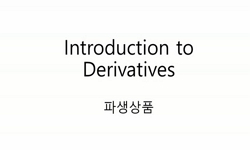In the business market, prices are typically subject to negotiation between exchange partners and buyers’ perceptions of the relationships with suppliers have a central role for supplier success and for establishing profitable prices (Hinterhuber & ...
http://chineseinput.net/에서 pinyin(병음)방식으로 중국어를 변환할 수 있습니다.
변환된 중국어를 복사하여 사용하시면 됩니다.
- 中文 을 입력하시려면 zhongwen을 입력하시고 space를누르시면됩니다.
- 北京 을 입력하시려면 beijing을 입력하시고 space를 누르시면 됩니다.
PRICE ASSESSMENT IN BUSINESS RELATIONSHIPS: AN ANALYSIS OF NET AND COMBINATORY EFFECTS OF RELATIONSHIP ATTRIBUTES
한글로보기https://www.riss.kr/link?id=A101947312
- 저자
- 발행기관
- 학술지명
- 권호사항
-
발행연도
2016
-
작성언어
English
- 주제어
-
KDC
325
-
등재정보
01
-
자료형태
학술저널
-
수록면
909-920(12쪽)
- 제공처
-
0
상세조회 -
0
다운로드
부가정보
다국어 초록 (Multilingual Abstract)
The purpose of this research is to deepen the understanding of buyers’ price assessments in business relationships. Specifically, this research seeks to further illuminate how relationship inputs provided by suppliers influence buyers’ assessments of the price level charged and their satisfaction with the price/quality ratio provided by the suppliers. The relationship inputs examined include buyers’ perceptions of supplier relationship-specific investments, long-term orientation, and relationship planning. In addition, this research considers two relationship parameters, that is, buyers’ commitment to the supplier and dependence from the supplier. Based on a sample of executives of different buyer firms, this research examines net effects and combinatory effects of the relationship factors on buyers’ evaluations of economic outlay. While the study of net effects offers insights into the effects of single antecedents on the outcomes across a sample of cases, the analysis of combinatory effects delineates (configurations of) antecedents sufficient for bringing about the outcomes of interest (e.g., Leischnig, Henneberg, & Thornton, 2016). Knowledge of these effects helps assess what relationship inputs and what combinations thereof may act as potential remedies for buyers’ price-related resentment in business The findings of this research show alternative configurations of relationship inputs and relationship characteristics sufficient for the two outcomes of interest. In addition, this research shows that individual relationship inputs and characteristics can have opposite effects on the outcomes, depending on how they combine with other antecedent conditions. Moreover, the results of this research reveal that specific antecedent factors differ in terms of causal coreness for the two outcomes of interest. In summary, these findings add to the net effect analysis and provide a more detailed and nuanced understanding of how relationship attributes impact buyers’ price assessments in business relationships.
In the business market, prices are typically subject to negotiation between exchange partners and buyers’ perceptions of the relationships with suppliers have a central role for supplier success and for establishing profitable prices (Hinterhuber & Liozu, 2015). Suppliers that seek to achieve price levels above the average market prices of offerings need to convince buyers of a favorable price/quality ratio (T?yt?ri, Rajala, & Alejandro, 2015). To date, however, research on absolute prices paid by buyers to suppliers, relative prices paid as compared to the average price level in a product category, or exchange partners’ perceptions of prices charged in business relationships remains limited. Extant work on buyer-supplier relationships has most commonly focused on costs rather than prices as economic outcomes of interest (e.g., Cannon & Homburg, 2001; Kalwani & Narayandas, 1995).
The purpose of this research is to deepen the understanding of buyers’ price assessments in business relationships. Specifically, this research seeks to further illuminate how relationship inputs provided by suppliers influence buyers’ assessments of the price level charged and their satisfaction with the price/quality ratio provided by the suppliers. The relationship inputs examined include buyers’ perceptions of supplier relationship-specific investments, long-term orientation, and relationship planning. In addition, this research considers two relationship parameters, that is, buyers’ commitment to the supplier and dependence from the supplier. Based on a sample of executives of different buyer firms, this research examines net effects and combinatory effects of the relationship factors on buyers’ evaluations of economic outlay. While the study of net effects offers insights into the effects of single antecedents on the outcomes across a sample of cases, the analysis of combinatory effects delineates (configurations of) antecedents sufficient for bringing about the outcomes of interest (e.g., Leischnig, Henneberg, & Thornton, 2016). Knowledge of these effects helps assess what relationship inputs and what combinations thereof may act as potential remedies for buyers’ price-related resentment in business The findings of this research show alternative configurations of relationship inputs and relationship characteristics sufficient for the two outcomes of interest. In addition, this research shows that individual relationship inputs and characteristics can have opposite effects on the outcomes, depending on how they combine with other antecedent conditions. Moreover, the results of this research reveal that specific antecedent factors differ in terms of causal coreness for the two outcomes of interest. In summary, these findings add to the net effect analysis and provide a more detailed and nuanced understanding of how relationship attributes impact buyers’ price assessments in business relationships.
동일학술지(권/호) 다른 논문
-
CONSUMER RESPONSE TO DISCLAIMERS IN DIGITALLY RETOUCHED ADVERTISEMENTS
- 글로벌지식마케팅경영학회
- Nadine A,Manfred Schwaiger,Charles R. Taylor,John P. Costello
- 2016
- 01
-
- 글로벌지식마케팅경영학회
- Zening Song,Ahmad Daryanto,Felix Martin
- 2016
- 01
-
- 글로벌지식마케팅경영학회
- Hoa Hong Pham,Ngoc Thai Pham,Duy Vu Nguyen
- 2016
- 01
-
ANXIETY ABOUT FOOD CONTAMINATION: PSYCHOLOGICAL AND fMRI EVALUATION
- 글로벌지식마케팅경영학회
- Saeran Doh,Yul-Wan Sung
- 2016
- 01




 코리아스칼라
코리아스칼라






